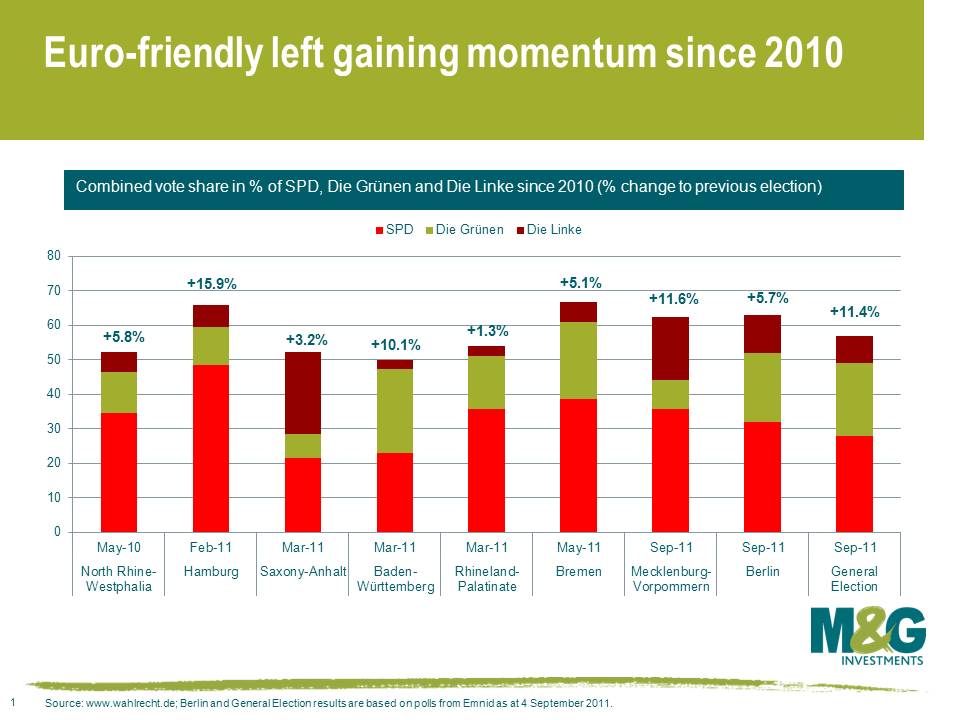The Euro-friendly left is gaining momentum in Germany
When I listen to my colleagues or read the English papers, the general consensus is that the Germans don’t like the Euro and don’t want to fund Greece’s bail-outs anymore. Whilst you can hardly argue against this overall impression of German public opinion, the feed-through from that to the German political landscape hasn’t necessarily reflected that popular view. In Finland and the Netherlands, Eurosceptic sentiment has created opportunities for increased political mandates for populist right-wing parties which emphasise national interests over the European “project”. But that hasn’t been the German electoral trend.
The German federal state election results since 2010 reveal that German voters have made a considerable move to the left. In the chart below, we combined the vote share of the three main parties on the left of the political centre – Sozialdemokratische Partei Deutschlands (SPD), Die Grünen (Green Party) and Die Linke (The Left) – and added recent poll results for the Berlin election (18 September) and the general election trend. The combined vote share of these parties is in all elections above 50%, and even above 60% in Hamburg, Bremen, Mecklenburg-Vorpommern and Berlin. This signifies a clear shift in political sentiment, as the comparison with the previous election results shows.
There are three significant implications of these results. First of all, the centre-right coalition parties have lost the majority in Germany’s upper house (“Bundesrat”). That is, this body will have to achieve compromise across party lines until the next major federal state elections which are not due before 2013. As the Bundesrat is meant to vote on legislation regarding European Union affairs, it is not difficult to see that recent complaints about too little involvement in the EFSF reforms will lead to more consultation with the Social Democrats and the Greens. Given the coalition government’s recent struggle to find a common position in the Euro crisis, this might not reassure the markets of a strong and clearly unified German position.
Secondly, if voters were aiming at a strengthening of Eurosceptic voices, they will be disappointed in the future. The Social Democrats and the Greens tend to be in favour of European integration and were both strong supporters of the Euro when they were in government. Even The Left, who are less enthusiastic about the Eurozone, don’t fundamentally challenge Germany’s membership.
Finally, we should keep this recent electoral trend and those two implications in mind when we are debating whether Germany is going to leave the Eurozone or going to chuck anyone else out of the inner circle. I get the feeling that the pro-Euro political powerbase in Germany is often underestimated abroad.
The value of investments will fluctuate, which will cause prices to fall as well as rise and you may not get back the original amount you invested. Past performance is not a guide to future performance.


18 years of comment
Discover historical blogs from our extensive archive with our Blast from the past feature. View the most popular blogs posted this month - 5, 10 or 15 years ago!


Bond Vigilantes
Get Bond Vigilantes updates straight to your inbox






